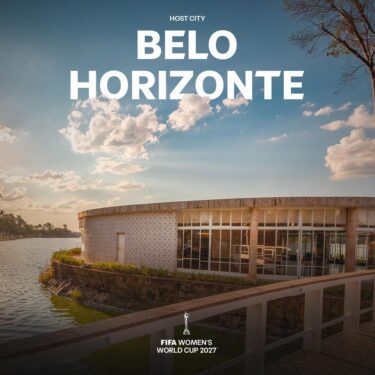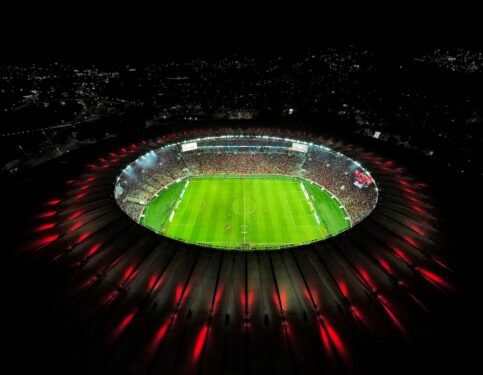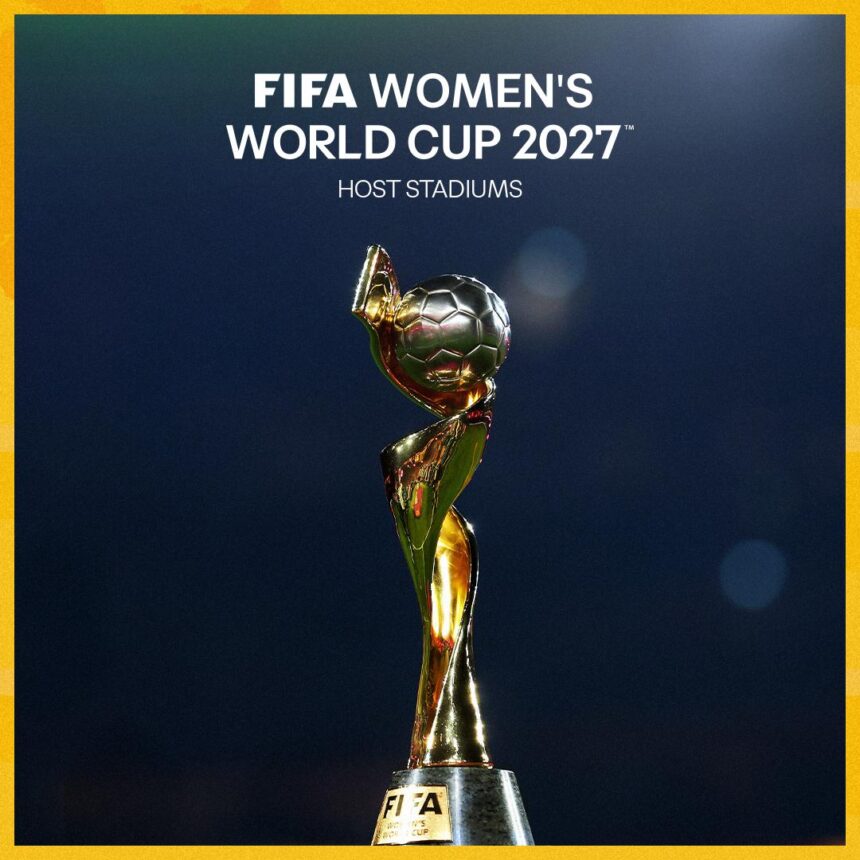FIFA, joined by a host of prominent and high-profile Brazilians, officially announced the eight Host Cities and their respective stadiums for the historic edition of the FIFA Women’s World Cup 2027™, marking a memorable milestone in the countdown to the tournament.
The selected Host Cities truly reflect the diversity of Brazil, which will host the first FIFA Women’s World Cup to be held in South America: Belo Horizonte (Estádio Mineirão), Brasília (Estádio Nacional), Fortaleza (Arena Castelão), Porto Alegre (Estádio Beira-Rio), Recife (Arena de Pernambuco), Rio de Janeiro (Estádio do Maracanã), Salvador (Arena Fonte Nova) and São Paulo (Arena Itaquera).
“From samba to frevo, from stunning beaches to cosmopolitan cities, the world will experience the energy, colour and warmth that only Brazil can offer,” said FIFA President Gianni Infantino.
“We will continue to work closely with the selected host cities on the exciting journey ahead of us, creating unforgettable moments in each of their stadiums in 2027, and ensuring that this tournament has a major and widespread positive impact. We are deeply grateful to all 12 cities that took part in the thorough and competitive selection process to host the FIFA Women’s World Cup 2027. Belém, Cuiabá, Manaus and Natal, we thank you very, very much for your extraordinary efforts. Your passion has not gone unnoticed, and we are committed to keeping in touch and finding meaningful ways for you to also be part of this historic event.”
The much-anticipated announcement was made today across FIFA channels by FIFA President Gianni Infantino, joined by celebrities and prominent figures from the sport, entertainment and public life in the Brazilian states where the eight Host Cities are located. Celebrations will now unfold across the cities, as communities proudly embrace their role in welcoming the world to Brazil for the FIFA Women’s World Cup 2027.
The host city selection process for the FIFA Women’s World Cup Brazil 2027™ began in August 2024 and was conducted in a clear and structured manner, following the same guiding principles used to select the host country. Specialised FIFA teams representing key operational areas essential to tournament delivery visited all 12 candidate cities, assessing the proposed infrastructure and facilities according to FIFA’s hosting requirements.
Following this in-depth evaluation, FIFA’s technical team classified the cities based on predefined criteria. It was agreed with the Brazilian government and the Brazilian Football Association (CBF) that a maximum of eight host cities and stadiums would be selected. The eight cities were chosen based on the FIFA technical evaluation to ensure the best conditions for hosting the 32 participating teams and the operational and commercial success of the tournament, with a view to maximizing the potential to drive the long-term growth and visibility of women’s football in Brazil.
The selected cities will begin their journey as official hosts in the coming days, as they welcome a team of FIFA experts to kick off the operational planning phase. The next major milestones on the road to 2027 include the release of the match schedule and the official brand launch, which will be an exciting moment for Brazil as a whole and in particular the eight Host Cities now preparing to dazzle the world.
Nigeria’s Super Falcons will attempt to keep up their record of having attended every FIFA World Cup tournament since 1991 when the qualifying series get underway in 2026.
Host Cities overview
Belo Horizonte – Estádio Mineirão | Population: 2.3 million
 Estadio Mineirão Belo Horizonte
Estadio Mineirão Belo HorizonteSurrounded by mountains and known for its passionate fans, Belo Horizonte is a football powerhouse with a rich history of hosting major international matches.
Brasília – Estádio Nacional | Population: 3 million
Brazil’s modernist capital boasts iconic architecture and a state-of-the-art stadium, making it a striking stage for global football and a celebration.
Fortaleza – Arena Castelão | Population: 2.7 million
A sun-drenched coastal city where football meets the beach, Fortaleza delivers unforgettable fan energy, scenic landscapes and carnival spirit.
Porto Alegre – Estádio Beira-Rio | Population: 1.3 million
A southern stronghold of Brazilian football, Porto Alegre combines European influence with deep-rooted rivalries and a city-wide love for the sport.
Recife – Arena de Pernambuco | Population: 1.6 million
This northeastern capital brings bold colours, infectious frevo rhythms and relentless fan enthusiasm to the tournament – all set against a stunning Atlantic backdrop.
Rio de Janeiro – Estádio do Maracanã | Population: 6.2 million

A global symbol of football passion, Rio de Janeiro offers an iconic stage in the legendary Maracanã. With samba in its soul and celebration in its streets, the city will bring unmatched energy to the FIFA Women’s World Cup 2027.
Salvador – Arena Fonte Nova | Population: 2.4 million
With its Afro-Brazilian culture and a joyful love for football, Salvador is home to one of the world’s most iconic carnivals, promising an atmosphere bursting with rhythm, colour and pride.
São Paulo – Arena Itaquera | Population: 11.4 million
Brazil’s largest city is a vibrant hub of football, culture and diversity. A cradle of talent with a deep connection to the women’s game, São Paulo offers world-class infrastructure and boundless energy for 2027.
Pictures credit: FIFA Media












